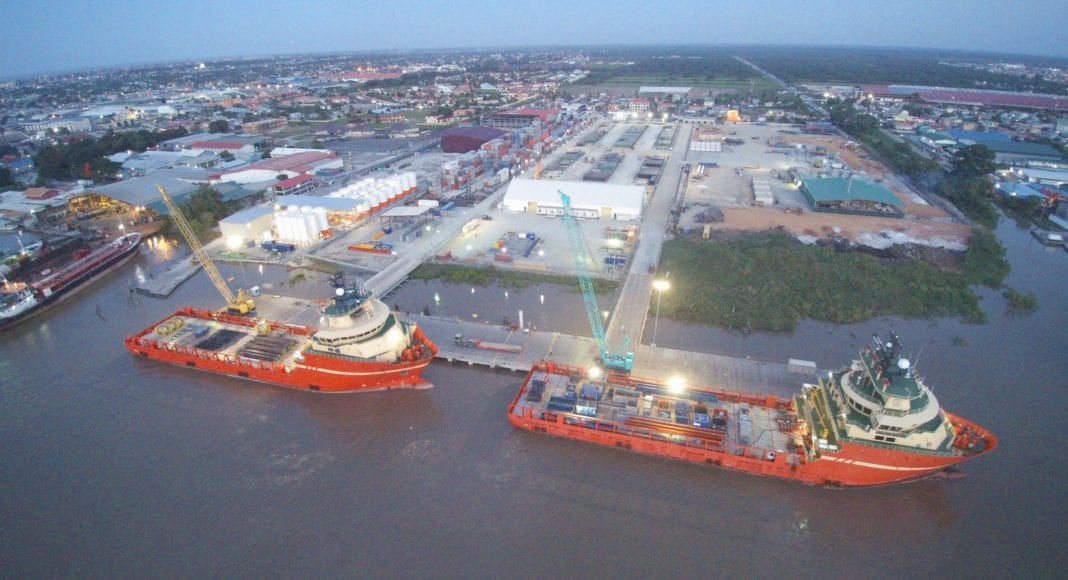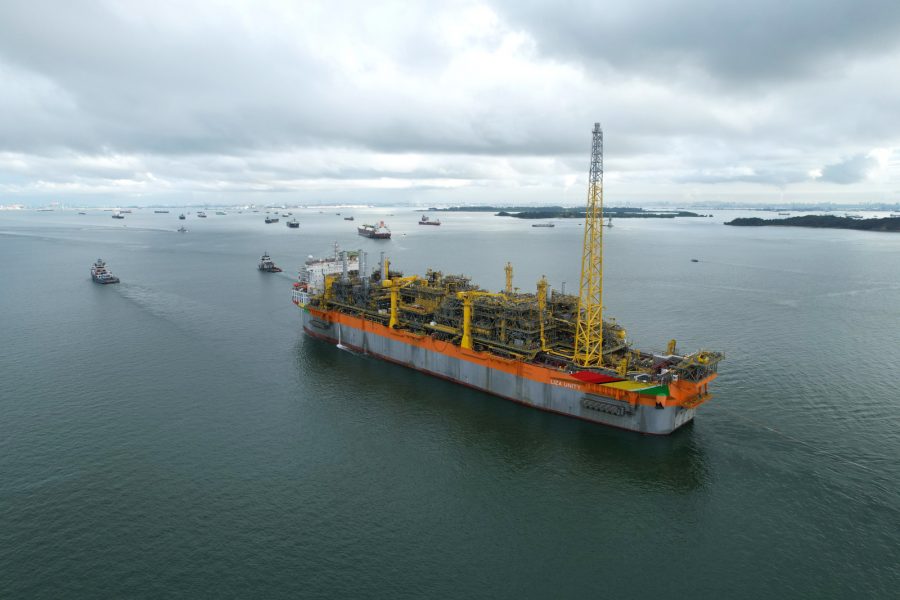
By Vishani Ragobeer
With a prolific Stabroek Block generating confidence in further oil finds offshore Guyana, the government is mulling the establishment of a National Oil Company to manage these oil resources if new exploration areas are not auctioned off to new investors.
Vice President Dr. Bharrat Jagdeo, during a Bloomberg Summit on Tuesday, noted that Guyana has many “unallocated” areas that the government has been “swamped by interest” to explore and possibly produce oil from.
With investors’ interests piqued and the proven oil finds, the government is seeking to change how it engages with those investors. That is, instead of a ‘first come, first serve’ process of partnering with developers, the country could find ways of getting the best deal.
“We’ve decided now that we want to either auction it [the remaining oil blocks] or we’re exploring now whether we can vest these in a national oil company but play a very passive role, as a passive investor, and get a strategic developer to work within the company to take shares and operate the company for us,” the Vice President highlighted.

As noted at a press conference last year, Vice President Jagdeo again said that the government will decide on whether it will auction these blocks by September of this year.
Through the new system of auctioning, the company that says it will pay the most money will get to operate in the area.
If the government chooses to form the national oil company instead of auctioning the blocks, however, the Vice President said that “large operators” in the Middle East have already signalled their interest in being Guyana’s “strategic partner.”
As the government mulls whether it will establish this national company or sell the oil blocks to the highest bidder, the Vice President said there are other factors to consider – one being further partnerships with ExxonMobil.

He acknowledged that there have been concerns raised about the “concentration” of an ExxonMobil-led consortium operating offshore Guyana.
For context, Esso Exploration and Production Guyana Limited (EEPGL) is ExxonMobil’s local affiliate and is the operator in the 6.6 million acres Stabroek Block comprising more than 10 billion oil-equivalent barrels.
EEPGL holds 45 per cent interest there; Hess Guyana Exploration Ltd. holds 30 per cent interest and CNOOC Petroleum Guyana Limited holds 25 per cent interest.
And already, Exxon has secured production licences for four development fields in the Stabroek Block: Liza Phases 1 and 2, Payara and Yellowtail. The company is already seeking approval for a fifth project: Uaru+.
With a large scale of operations already secured by ExxonMobil in Guyana, Dr. Jagdeo said that the government is yet to determine whether it will allow these existing operators to bid for more oil blocks at the potential auctions.
“…that determination will be made but we are very mindful of the issue of concentration,” Dr Jagdeo said.
He, however, added: “… but we don’t want less participants in the auction process (because) it could result in lower prices.”
‘WE NEED IT MORE’
As the government decides on the future of Guyana’s nascent oil industry, Dr Jagdeo also knocked concerns about Guyana’s seemingly conflicting pursuits: oil and gas production alongside low carbon development.
He emphasised that Guyana already captures more harmful carbon dioxide than it emits, thereby providing invaluable protection services to the earth. And despite the global thrust towards reducing the use of fossil fuels, like oil, he noted that countries can’t yet shake their dependence on these fuels to produce energy.
“We need these resources more than anyone else to transform our economies,” Dr Jagdeo said too, emphasising that small, underdeveloped countries like Guyana and those in Africa should be allowed to exploit their natural resources.
Particularly for Guyana, the Vice President said that the need to upgrade health care, education and the country’s infrastructure exists alongside the country’s need to build out systems to protect against extreme climate events like worsening flooding.






